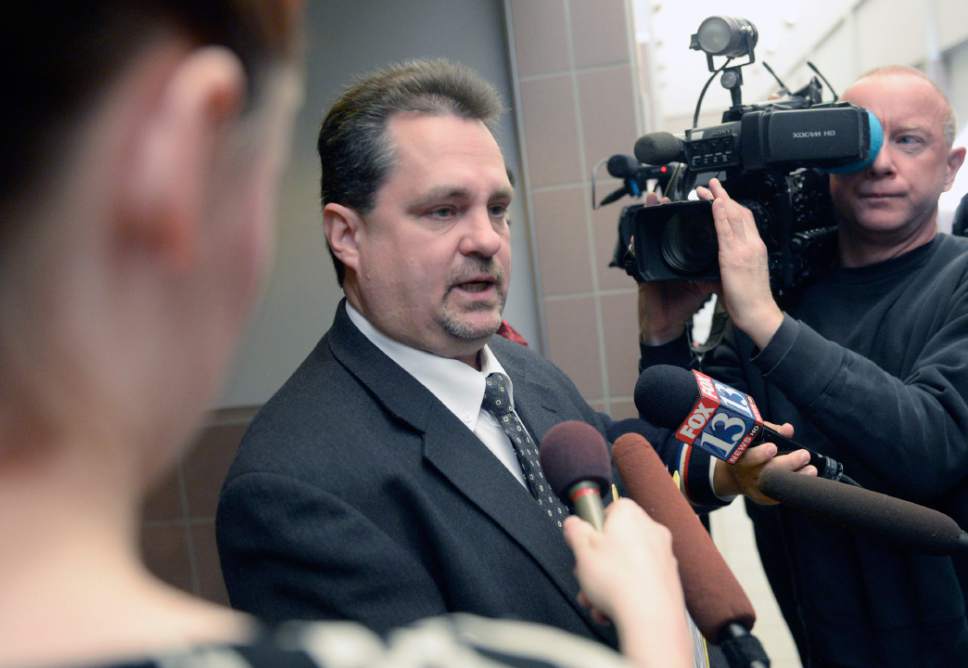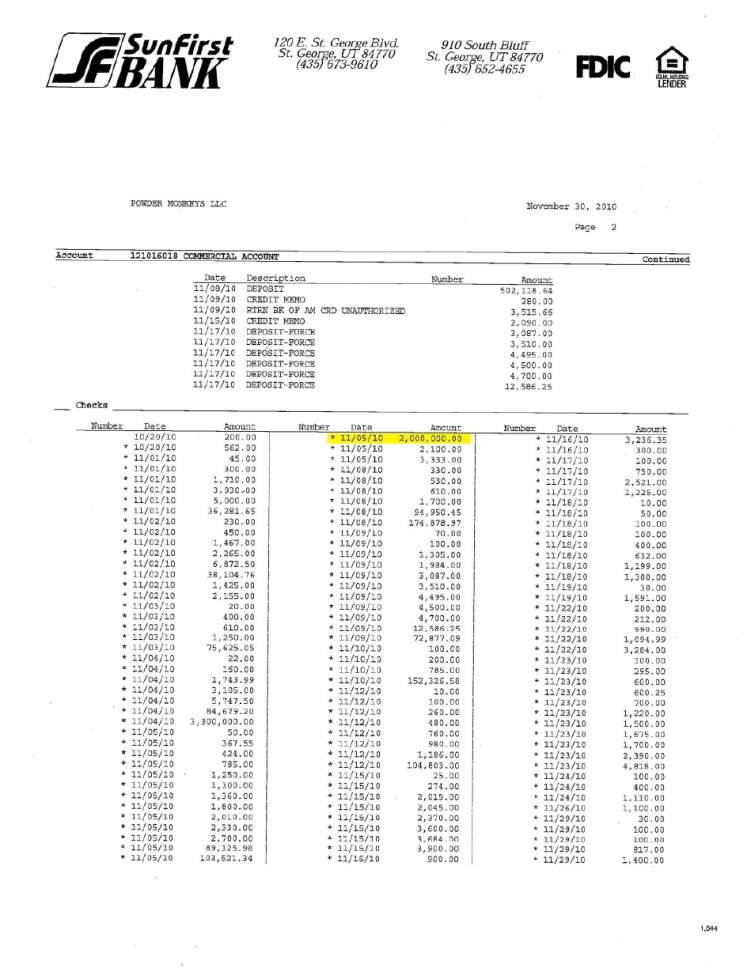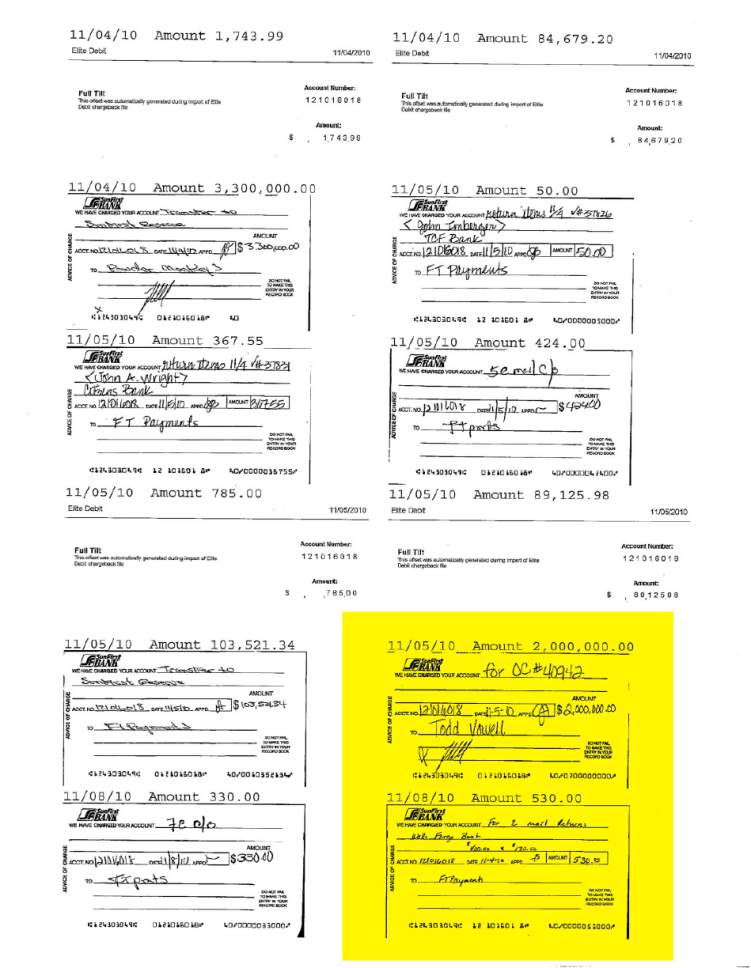This is an archived article that was published on sltrib.com in 2016, and information in the article may be outdated. It is provided only for personal research purposes and may not be reprinted.
State and federal agents may have waited nearly three years to pursue financial records about offshore accounts that a prosecutor believes could link a $2 million check from a Utah bank to a reported attempt to bribe a powerful U.S. senator — even though they had access to a copy of the check and key witnesses as early as 2013.
The revelation about recent investigative actions is contained in a newly obtained Oct. 14, 2016, report by Utah Department of Public Safety (DPS) agent Scott Nesbitt, who worked alongside the FBI during a multiyear probe of former Utah Attorneys General John Swallow and Mark Shurtleff.
Its drafting, Nesbitt wrote, came in response to the "persistent discussion" of the check by Davis County Attorney Troy Rawlings and questions from The Salt Lake Tribune. It was generated three days after the newspaper requested interviews with the agents. That request was denied.
The Tribune obtained Nesbitt's report last week after publishing a picture of the check as part of a Sunday story documenting allegations of an attempt to bribe former Senate Majority Leader Harry Reid and a wider public corruption investigation launched by Rawlings, who believes the check may have gone to a Marshall Islands bank account meant to benefit the Nevada Democrat.
Rawlings, who is deputized as a special assistant Utah attorney general, has been seeking information about the check as part of his "Rogue Runner" investigation, which mushroomed from his now-abandoned prosecution of Shurtleff.
Rawlings was among the authorities told by St. George businessman Jeremy Johnson as early as 2013 that the money may have been intended to reward Reid for his help with a bill to legalize online poker under federal law.
Records show the check came from online-poker funds at SunFirst Bank in St. George.
Court filings, investigative reports, emails, audio recordings and other documents, including a copy of the check, do not make a direct connection to Reid but raise questions about whether the FBI and the U.S. Department of Justice conducted a thorough probe to find out.
DPS and the FBI declined to answer questions about Nesbitt's report or any investigative efforts by agents, including why a copy of the check was never obtained.
Shipping documents indicate that the check went from Utah to a Los Angeles poker company attorney; the back shows it was deposited in a Swiss bank.
Nesbitt's report says agents saw a copy of the check — at least the front — during a Feb. 3, 2014, interview with Johnson, who is now in prison after a conviction in a separate federal criminal case.
"We've never seen the backside of the check, and that was always an issue because we wanted to see what happened to the check," wrote Nesbitt, who has been cross-deputized as a federal agent. "To the best of my knowledge and recollection, we have not ever received a copy of that check, although it was a topic of discussion with Jeremy Johnson in 2014."
The two-page report notes that, on Oct. 12, 2016, agents made what appears to be their first attempt to learn how to obtain international corporation or banking records. They contacted the Securities and Exchange Commission's Office of International Affairs.
An attorney there explained to Nesbitt that memorandums of understanding and treaties to gather such information exist but that he did not know of "any viable mechanism for a state in the United States of America to obtain records from another country."
The report also says agents couldn't find any record of the check in now-defunct SunFirst Bank documents, which were seized in 2011 as part of a federal regulatory lawsuit and the criminal case against Johnson.
Therefore, Nesbitt wrote, "it's possible that the check was printed and never negotiated [cashed] or that the copy was fabricated."
Bank records from SunFirst and emails obtained by The Tribune, however, clearly show the $2 million check was cut from a Full Tilt poker account Nov. 5, 2010, the date that appears on the check.
Rawlings said Friday he had received a copy of the report but could not comment on its contents. However, he said federal authorities had numerous opportunities to obtain a copy of the check and that "issues surrounding these matters" had been discussed in multiple emails and meetings.
Court papers and other public records reveal Rawlings has made multiple attempts to get investigative materials from federal agencies without success. Rawlings has said he suspects higher-ups in the Department of Justice have blocked efforts to investigate.
"The DOJ has never let the local FBI investigate this matter," Rawlings wrote in an email, "even though they would have done so had they not been shackled."
Rawlings hopes to impanel a state grand jury to hear evidence about the check and other matters. He was promised $50,000 toward that effort by the Utah attorney general's office in April, but an agreement on the funding remains pending.
In an email Thursday, attorney general's office spokesman Daniel Burton said he could not provide information on the agreement because the office has a "policy of not commenting on ongoing investigations."
Reid's office previously has denied any wrongdoing and accused Rawlings of political grandstanding.







